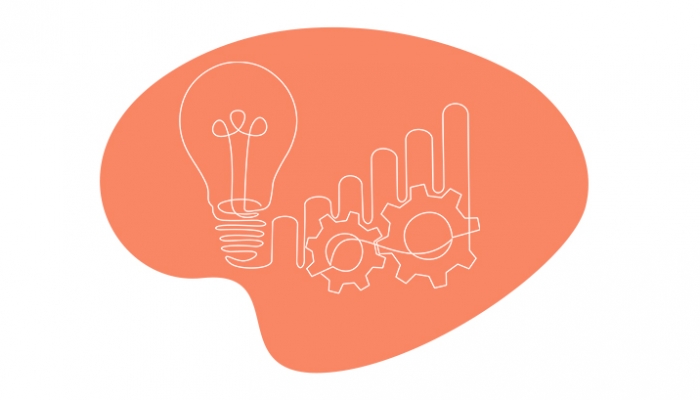8 things you need to know about the use of AI in PR and the media
Will AI ultimately be a help to us in our jobs, or lead to a Skynet-level humans versus artificial intelligence showdown years in the future? We can’t answer that, but we can tell you how technologies like ChatGPT are already impacting public relations, the media, and politics – both for good and, when applied incorrectly, the not-so-good.
Here is what you need to know about the use of AI in PR and journalism now, taken from our latest white paper ‘Reputation management: How PR and comms can maintain trust in an AI-assisted future’ – download it here.
Want more on this topic? Sign up to our webinar with Danebury Research’s Paul Stallard ‘The AI conundrum – paving the way for the future of comms’ to join us on Wednesday 7 June, 11-11.30 BST.
1) A pro: AI is supporting the work of journalists (and helping the bottom line)
‘Over the last few years, we have seen the use of AI increasing because it’s valuable to support the journalists in different areas; in news gathering, in news production, but of course most importantly with the audience and the way in which you can enhance that and raise revenue.’
Charlie Becket, founding director of Polis and leader of the LSE Journalism and AI project
2) A con: AI could hinder the work of journalists to inform when applied incorrectly
‘We have to think about where we can use those tools, and when we shouldn’t. One of the things I want us to do is to demonstrate where our articles are coming from. People are using AI and putting together information without that source to show where that information came from.’
Jo Adetunji, editor at The Conversation
3) PRs need to be ready to fight AI-assisted PR disasters
‘We cannot escape conversations around ChatGPT at the moment – any activist or online troll could use that technology to spread all sorts of content on social media to trash the reputation of a corporation. If you are a bit more sophisticated, you could use deep fakes to impersonate senior figures in business to create a PR disaster. For a listed company, bad actors could move their share price.
‘And I am not making this up. The Eurasia Group has forecast this as a possibility in 2023. PRs must be aware of the reputational challenges posed by actors harnessing tech for malicious ends.’
Thomas Barton, founder and CEO of Polis
4) AI may not revolutionise comms, but it could streamline the way we work
‘Although ChatGPT is expected to continue to revolutionise the way we do PR and marketing, I still believe it won’t lead to smaller teams and massive layoffs.
‘Instead, the tool will further streamline PR processes to help PR professionals become more productive. So, the tool will only get better at proofreading your press release, refining your PR pitch, and helping you come up with ideas for a PR brainstorming session or social media posts. The tool will also get better at ensuring consistency across your PR (and marketing) material.’
Chris Norton, founder of B2B PR agency Prohibition
5) Entry-level jobs in the creative industries could disappear
‘Probably in lots of different sectors it is the ‘bottom rung’ that will be impacted — people who have just started their job.
‘I’m sure it’s the same in PR as in journalism — when you start out, you’re doing the unglamorous jobs. That work could be done better by AI, potentially. The bottom rung could be in a difficult position.’
William Turvill, associate editor for Press Gazette and media correspondent for the New Statesman
6) An increase in AI assistance means a need for more personalisation and authenticity (AKA humans)
‘With the rise of AI-generated content, storytelling will become even more relevant. Increased AI-powered content production will create more content, which will be more general as AI is not incentivised to be bold. This means personalised, unique voices will become more powerful, as it will help companies stand out from the crowd.’
Jan Bohnerth, CEO of Life Size
7) In the absence of regulation, PRs must hold themselves to account
‘Everything’s happening so fast — there needs to be big thoughts about regulation. At a firm level, there’s a lot you can do with making sure you don’t rip people off.’
Helena Pozniak, independent journalist writing for the Telegraph, The Guardian, the Institution of Engineering and Technology as well as various universities and specialist sites
8) Don’t be alarmed, but be realistic about the impact AI will have on you and your work going forward
‘I saw someone tweet that AI is going to kill us all in five years. I’d be so wary of any bold claims like that, because there is so much money behind this stuff, in doom-mongering or overexaggerating.
‘Future prediction is always a murky area — that’s something I would be hugely vary of.’
Amelia Tait, freelance features writer for outlets including The Guardian, New York Times, Wired, the New Statesman, and VICE.
Download the full Vuelio and Danebury Research white paper here.
Check out what you also need to know about the impacts of fake news, shared in our previous webinar with Polis’ Thomas Barton ‘Why we need to take online misinformation and disinformation seriously’.







Leave a Comment